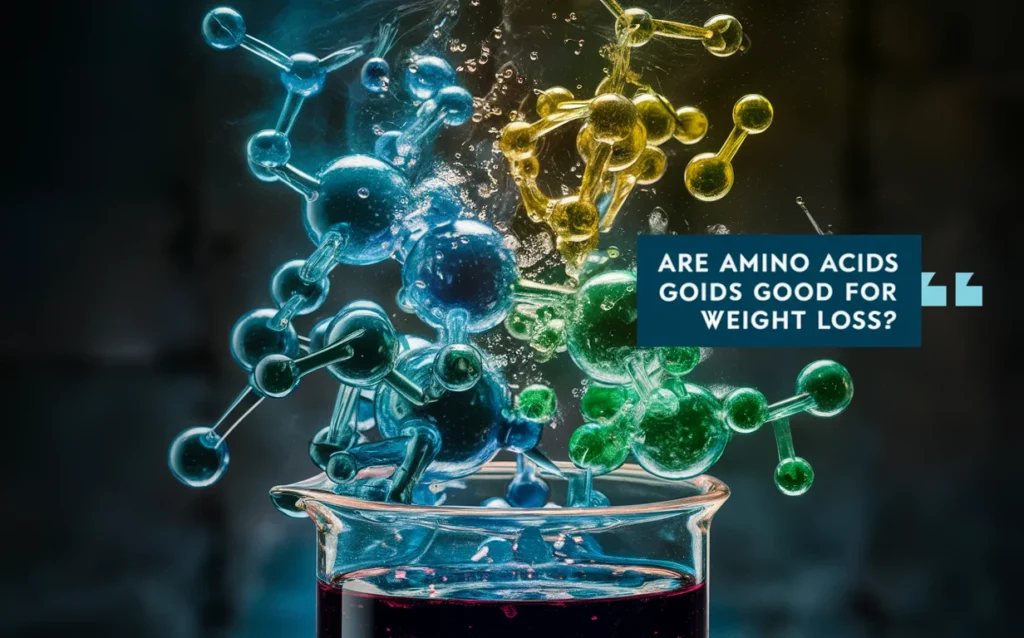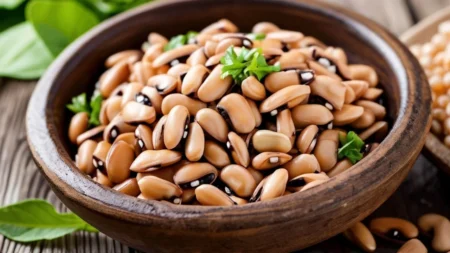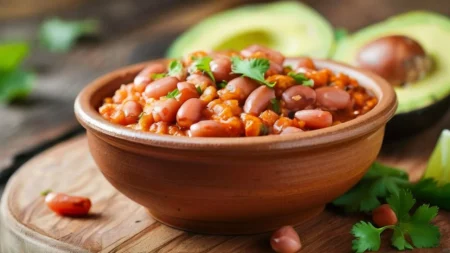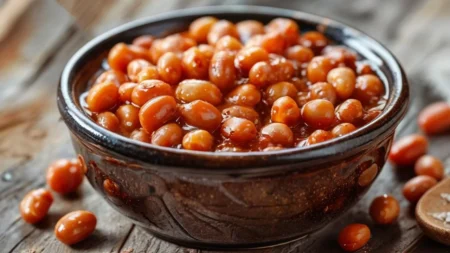Are Amino Acids Good for Weight Loss?
Key Takeaways
- Amino acids play a significant role in building lean muscle, which helps burn more calories.
- Certain amino acids, like BCAAs, can enhance workout performance and recovery.
- Some amino acids may help reduce appetite, potentially aiding in weight loss.
- Supplementing with amino acids alone is not a substitute for a balanced diet and exercise.

What Are Amino Acids?
Amino acids are the building blocks of proteins, essential for numerous bodily functions, including muscle repair, hormone production, and immune support. There are 20 amino acids, nine of which are essential, meaning they must be obtained through diet. These essential amino acids are commonly found in protein-rich foods like meat, fish, eggs, and legumes.
Types of Amino Acids
Amino acids are categorized into three main types:
- Essential Amino Acids (EAAs) – Must be obtained from food or supplements.
- Non-Essential Amino Acids – Produced by the body.
- Branched-Chain Amino Acids (BCAAs) – A subgroup of EAAs that includes leucine, isoleucine, and valine. These are particularly beneficial for muscle building and recovery.
How Do Amino Acids Aid in Weight Loss?
1. Supporting Muscle Growth and Maintenance
- Muscle tissue burns more calories than fat tissue, even at rest. Amino acids, especially BCAAs, help to maintain and build lean muscle mass, which can boost metabolism and increase calorie expenditure.
- Consuming amino acids after a workout can aid in muscle recovery and reduce muscle soreness, enabling more frequent and intense exercise sessions that contribute to weight loss.
2. Enhancing Exercise Performance
- Amino acids, like glutamine and BCAAs, can enhance athletic performance by reducing muscle fatigue and improving endurance. This allows for longer, more intense workouts, leading to greater calorie burn and enhanced fat loss.
- BCAAs in particular can help reduce muscle breakdown during exercise, enabling you to sustain higher intensity workouts, which are beneficial for weight loss.
3. Appetite Control and Satiety
- Amino acids can help regulate appetite by influencing hormones that control hunger, such as ghrelin and leptin. For example, tryptophan is a precursor to serotonin, which can help increase feelings of fullness.
- Some studies have shown that protein and amino acids may increase satiety, helping to reduce overall calorie intake.
4. Fat Burning
- Certain amino acids may support the body’s ability to burn fat. For instance, L-carnitine plays a role in transporting fatty acids into the cells where they are burned for energy.
- Although amino acids alone will not cause significant weight loss, they can support fat-burning processes when combined with exercise and a calorie-controlled diet.
Key Amino Acids for Weight Loss
Some amino acids have unique benefits for weight loss:
| Amino Acid | Function |
|---|---|
| L-Carnitine | Helps transport fatty acids to be burned for energy. |
| BCAAs | Reduces muscle soreness, enhances performance, and preserves muscle mass. |
| Glutamine | Supports muscle recovery and may reduce sugar cravings. |
| Arginine | Increases blood flow, which can enhance endurance during workouts. |
| Tryptophan | Precursor to serotonin, may help with appetite control. |
1. L-Carnitine
- L-carnitine is often promoted as a fat burner because it helps move fatty acids into the mitochondria, where they can be used for energy. This process may aid in fat metabolism, especially during exercise.
- While studies are mixed, L-carnitine is generally more effective in supporting fat metabolism when combined with regular exercise.
2. BCAAs (Leucine, Isoleucine, Valine)
- BCAAs are particularly useful for those looking to build and preserve muscle while losing fat. They help to prevent muscle breakdown during workouts, which is crucial when on a calorie-restricted diet.
- Leucine, in particular, has been shown to play a role in muscle protein synthesis, making it valuable for weight management and body composition.
3. Glutamine
- Glutamine can support muscle recovery, reducing muscle soreness and fatigue after workouts, which can make consistent exercise more manageable.
- It may also help reduce sugar cravings, making it easier to stick to a diet plan.
4. Arginine
- Arginine increases blood flow by producing nitric oxide, which can enhance workout performance and endurance. Improved blood flow also aids in nutrient delivery to muscles.
- While its effects on weight loss are indirect, it supports better exercise performance, which can contribute to overall calorie burn.
Amino Acids in Foods vs. Supplements
Amino acids can be obtained through food or supplements. Protein-rich foods naturally contain amino acids, and these are typically sufficient for most people. Common foods rich in amino acids include:
- Lean meats (chicken, turkey, beef)
- Fish (salmon, tuna)
- Eggs
- Dairy products (milk, yogurt)
- Legumes (beans, lentils)
- Nuts and seeds
Supplements are convenient for those who may struggle to get enough protein through diet alone, or for athletes who require additional support for muscle recovery and performance. Whey protein and BCAA supplements are popular choices.
Sample Meal Plan for Weight Loss with Amino Acids
To ensure an adequate intake of amino acids while promoting weight loss, consider the following meal plan:
| Meal | Food | Amino Acid Source |
|---|---|---|
| Breakfast | Scrambled eggs with spinach and whole-grain toast | Eggs (complete protein) |
| Snack | Greek yogurt with berries | Dairy (high in leucine) |
| Lunch | Grilled chicken breast with quinoa and vegetables | Chicken (BCAAs, glutamine) |
| Snack | Cottage cheese with a handful of almonds | Dairy, almonds (arginine) |
| Dinner | Salmon with sweet potatoes and broccoli | Fish (complete protein) |
Incorporating a variety of these foods into your diet can help ensure you get a broad spectrum of amino acids.
Conclusion
Amino acids can play a supportive role in weight loss by promoting muscle growth, enhancing workout performance, and helping control appetite. However, amino acids alone will not cause weight loss. For optimal results, they should be combined with regular exercise and a balanced, calorie-controlled diet.
Whether through whole foods or supplements, amino acids are a beneficial addition to a weight-loss plan, especially for those focused on preserving muscle mass while burning fat.
FAQ
1. Do amino acids help burn fat?
Amino acids like L-carnitine can support fat metabolism, but they work best when combined with exercise and a balanced diet.
2. Can I take amino acid supplements while dieting?
Yes, amino acid supplements can help maintain muscle mass and enhance workout performance, which can support your weight-loss efforts.
3. What are BCAAs, and how do they help with weight loss?
BCAAs (leucine, isoleucine, valine) help preserve muscle during weight loss and improve recovery after workouts, allowing for more consistent exercise.
4. Should I get amino acids from food or supplements?
Both sources are effective. Whole foods provide a broader range of nutrients, while supplements can be convenient for targeted amino acid intake.
5. How often should I take amino acids for weight loss?
If you’re using amino acid supplements, follow the recommended dosage on the label. Incorporating amino-acid-rich foods into each meal can also ensure steady intake throughout the day.










